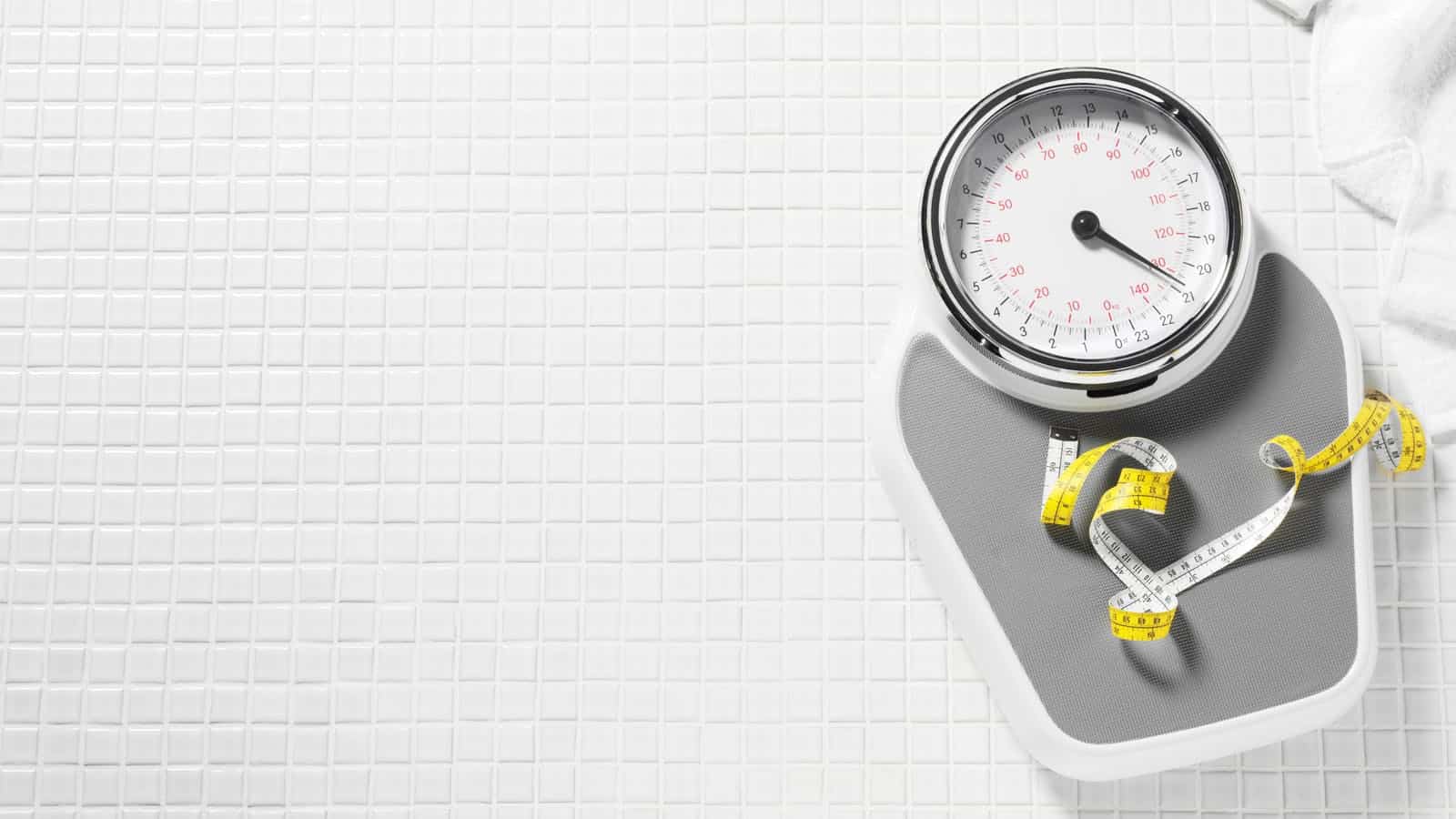
Although we do not fully understand all the reasons for problematic weight loss, on first principles the following may be involved.
In order to lose weight on the Banting eating plan, or indeed on any diet, one must ingest fewer calories. The usual advice that one can do this consciously by simply eating less ever more and exercising more usually fails hopelessly, because this method simply makes one hungry. In time, one’s life becomes dominated by thoughts of food – what has been termed “starvation psychosis”. Eventually when the dieter can no longer stand the deprivation so that she again starts to eat more calories, the weight gain rebounds because we now know the “fat building” hormone – insulin – is over-secreted in response to re-feeding in those who have been deliberately starving themselves on a low fat diet. This insulin stimulates hunger and stores the excess ingested calories as fat. Interestingly this response – the starvation pshychosis – was first described by Ancel Keys PhD (the notorious scientist who gave us the false diet-hear hypothesis), but on this one he was absolutely correct. Unfortunately this monumental body of work of his on the starvation response has largely been ignored.
In contrast, the reason why Banting is so effective for so many is that the severely limited carbohydrate intake, associated with adequate fat and protein intakes, produces satiation at substantially lower caloric intakes. As a result weight loss occurs and, most importantly, even though one is eating fewer calories the Banter is NOT HUNGRY.
The point is that Banting produces weight loss by reducing hunger and, as a result, calorie consumption. This effect works at a subconscious level by acting on the brain appestat – the brain region that regulates calorie consumption by turning hunger on and off in response to feeding and starvation.
General Guidelines for Problematic Weight Loss
From feedback I have received from those who have struggled to lose weight on the Banting diet, here are some ideas you might like to try to improve weight loss:
- Dairy produce seems to be a factor preventing weight loss in some. Milk contains substantial amounts of carbohydrate and this could be a factor. Alternatively, there may be some particular components of milk that encourage overconsumption of calories in some individuals.
- Test whether you do better on a higher fat or a higher protein diet. Some do better on a lower fat, higher protein diet and for others it is the opposite.
- Eat less frequently. The idea that humans are designed to sit down to eat 3 meals a day is a recent invention. In the 1500s, the English ate once a day and this was probably the usual pattern for most of human evolution. The truth is that humans are designed for fasting, not for frequent consumption every few hours. I appreciate this conflicts absolutely with the common advice of some dietitians, that one must eat at least 6 times a day to prevent hunger. In my opinion, the effect of eating frequently is more hunger, not less. So reduce the frequency with which you sit down to eat large meals – initially to twice a day and then perhaps to one-and-a-half larger meals a day in response to real sensed hunger. Between meals one can snack (a little) on high fat, high protein foods like macadamia nuts, biltong, cheese, etc. Be aware that you can easily ingest too many carbs and calories by eating too many nuts.
- Consult your doctor to check that you do not have a (rare) medical condition that might be contributing to your inability to lose weight. Thyroid status may be important.
- Consider intermittent fasting as described by Dr Jason Fung on his website (https://www.dietdoctor.com/intermittent-fasting-faq).
- Make sure that you really are eating only 25-50g of carbohydrate per day.
- Aim to rid yourself of any lingering desire for sweetness in your diet. Having already cut sugar, you will need to remove all artificial sweeteners and foods containing artificial sweeteners.
- Keep experimenting until you find a solution.
- Exercise for your health, but on the understanding that what you eat, not how much you exercise, determines your weight. You cannot outrun a bad diet.
But remember that if your health markers are excellent and show that you are not insulin resistant, then the weight you are may be perfectly healthy.
The aesthetic of greater leanness does not necessarily mean one is healthier. If your test results show you are healthy, then you have achieved what you need to.
Not Losing
The more effectively the brain regulators of hunger are switched off by the Banting diet, the greater will be the weight loss (as the calorie intake will be reduced in direct proportion to the reduction in hunger). But if the diet fails to correct the desire to eat by obliterating hunger, then Banting will not cause any weight loss.
Thus, if you are not losing weight on the Banting diet it may be because you do not need to lose weight or, more likely, because your hunger has not been corrected by the high fat/protein intake. The next steps would be to further reduce your carbohydrate intake to less than ~25g/day. Then introduce intermittent fasting in which you eat each day in an eating window of, say, 8 hours (12 noon to 8pm) followed by 16 hours of fasting (8pm to 12 noon).
Increased
Unfortunately we do find that there are some, especially it seems women, who can gain weight on this diet.
So clearly, in anyone who gains weight on the Banting eating plan this is not the normal response. Unfortunately limiting carbohydrates and increasing fat and protein intake seems to stimulate the appestat to increase calorie consumption in some rare cases. Why this seems to happen more frequently in women than in men is interesting and may be because women are more likely to have tried to lose weight in the past. They may therefore be more likely to have been restricting their food intakes in the past. So when told they need no longer consciously restrict their calorie intakes, their appestats may over-respond and as a result they do not reduce their calorie intakes.
But the truth is that this is all speculation. In the absence of decent scientific studies of the problem, all explanations are guesswork.
Stopped Losing
You may have lost fat and replaced it with some muscle. Has your waist measurement decreased? If not, then this explanation does not work.
To lose weight you need to reduce your calorie intake. Even though you’re eating relatively little, it may be that your body has adapted to require fewer calories to sustain it. If this is the case you actively have to reduce your calorie consumption in order to lose more weight. In other words, you need to learn to restrict your calories.
I have reduced my calorie consumption by up to 40%, largely because I’ve lost my appetite on the high-fat moderate-protein diet and I only eat highly nutritious, energy-dense foods. But I also think that there is an element of conscious control in that I consciously aim to eat less now, than I would have in the past.
I do believe that you can teach yourself to live on less food without being hungry. I have done this by restricting myself to eating only a small range of foods (see the Green List in The Real Meal Revolution book) and so there is never any temptation to eat beyond that range. Restricting foods to a few is a key to successful weight loss in my view. But I think there is one absolute if you want to be as lean as you can be. YOU HAVE TO CUT ALL SUGAR FROM YOUR DIET. This includes also all sugar substitutes. The key is to lose any desire to eat sweet-tasting foods. Once you achieve this, you should be able to control your weight effortlessly.
Finally, some people find that if they cut dairy from their eating and drinking they do better. You might want to consider that.
Written by Prof Timothy Noakes OMS
MBChB, MD, DSc, PhD(hc), FACSM, (hon) FFSEM (UK), (hon) FFSEM (Ire)
April 2019
Prof Noakes is a Chief Medical Advisor on the Nutrition Network curriculum, ensuring that our content is of the highest scientific standard.
Enrol in one of our CPD-Accredited online trainings if you would like to learn from the best: www.nutrition-network.org/apply-now/
